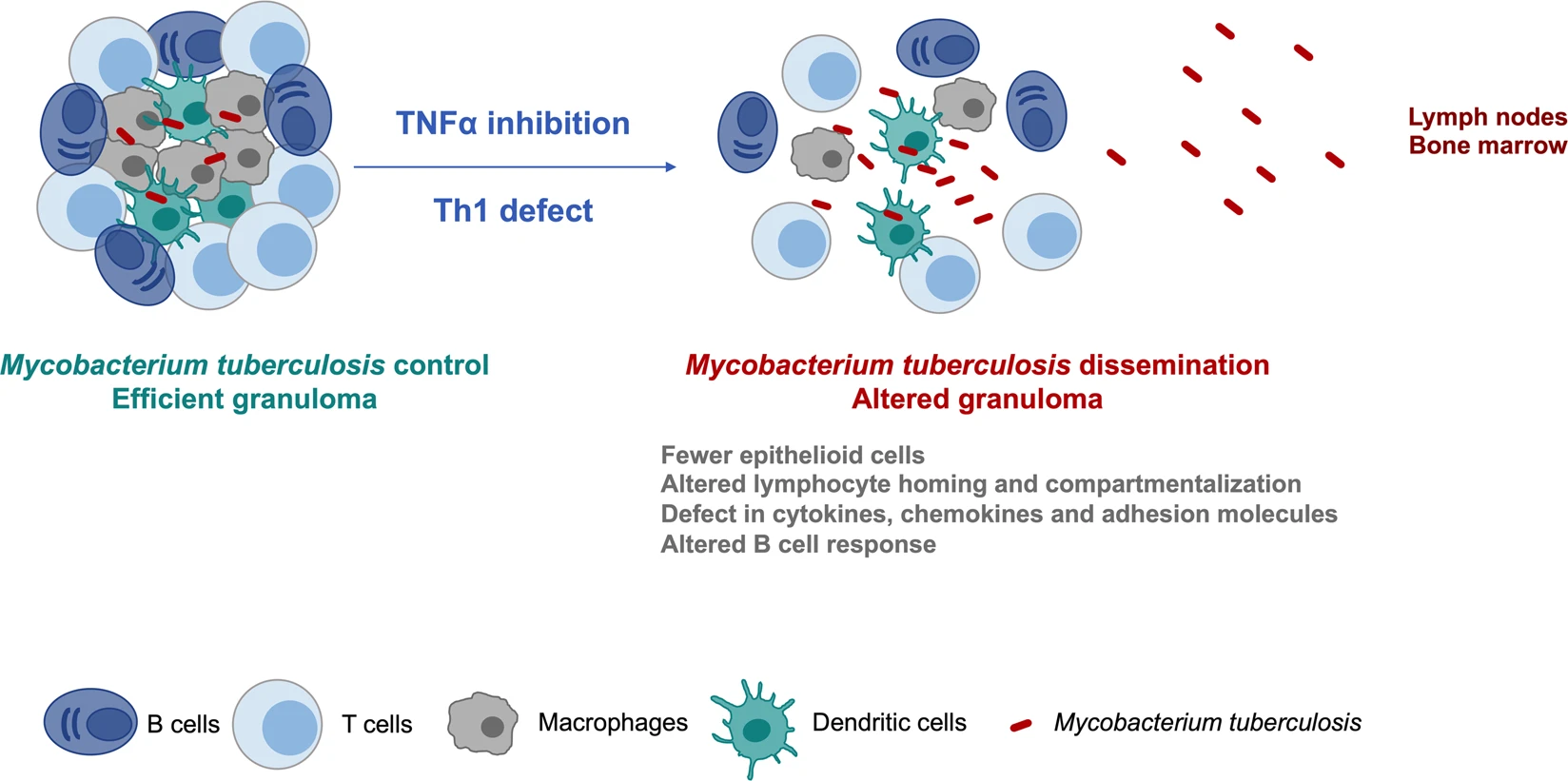Asked by McArdle
The use of TNF-alpha inhibitors increases the risk for opportunistic infection including mycobacteria, fungi, legionella and listeria. This is because of the reason that TNF-alpha stabilizes old granulomas and using TNF-alpha inhibitors leads to granuloma dissociation and release of the organism, thus the infection is reactivated.
TNF-α plays a role in macrophage activation and differentiation and phagosome formation and is critical for the clearance of intracellular pathogens (eg, Listeria, Legionella, Salmonella). Neutropenia can occur after anti-TNF administration, predisposing to opportunistic infections such as Candida or Aspergillus. TNF-α is also important for immune responses against viral pathogens, and its inhibition could cause complications in patients infected with hepatitis B virus (HBV) or varicella zoster virus (VZV).
Reference: Ali T, Kaitha S, Mahmood S, Ftesi A, Stone J, Bronze MS. Clinical use of anti-TNF therapy and increased risk of infections. Drug Healthc Patient Saf. 2013;5:79-99. doi: 10.2147/DHPS.S28801. Epub 2013 Mar 28. PMID: 23569399; PMCID: PMC3615849.
